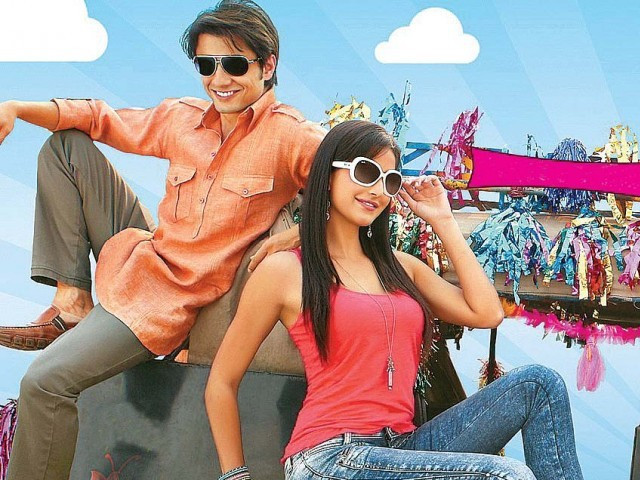In the movie Katrina Kaif plays Dimple. But she’s not just any Dimple, she’s Dimple urf D, which means she’s free-spirited and spontaneous too. Someone who was born in London and bred there for 18 years before showing up in Delhi with short-shorts, long legs, zero acting skills and some silly dialogue to boot. In these initial scenes that last for about ten minutes she’s a rockstar. Why just in these scenes, you may ask? Because the movie wants you to mistake her for a certain type of girl — you know, one born and raised abroad, plays the guitar and hobnobs with suspicious looking boys? That sort.
But that’s a mistake. And D will have you know very soon.
Immediately after her rock concert which is attended by hundreds if not thousands, D is found in a small closed tent kicking and yelling at her boyfriend for trying to do with her what boyfriends have been notorious for doing in small closed tents for nearly all of human history. She’s outraged. How narrow-minded can Indian boys be? How did such a shockingly offensive idea get into his head anyway? For her, personally speaking, this was inconceivable. So after kicking her boyfriend in the gut and nuts, she clarifies her stance in no uncertain terms — in case you in the audience still didn’t get it —
“Mein andar se tau aik Hindustani larki hoon.”
And as if taking a cue from this amazing insight into her character, the movie also shuns her legs for the rest of the one hundred and sixty minutes, and respectfully shifts its gaze to her midriff and bosom. (No, no cleavage. Hasn’t she just told you that she’s a good Indian girl? And what’s up with you anyway?)
That’s a fine example of the twisty things this movie does. It fights stereotypes with even worse stereotypes. It repeatedly leads you to believe it is about to break out of formulaic situations, characters, etc — but then lunges right back to hug their deep, comfy grooves. Its ultimate message seems to be: Just relax, okay? Nothing’s changed in Bollywood.
That sums up the movie, thank you. Let’s move on to poetry.
The Leap
By Daud Kamal
Alexander on horseback
leapt over the Indus here,
or so the storytellers say,
and on the other side
of that hill in a grove
of mango trees he listened
in rapt attention
to a naked sadhu
talking of immortality.
This poem doesn’t seem like much at first but read a bit carefully and you will see Alexander’s leap over the breadth of the Indus is an invitation for the reader to make a leap of imagination. The other part of the story is only accessible to the one who lands safely on the other side. Once there, you walk down to the grove of mango trees and find Alexander listening to a naked sadhu. The poem ends leaving you at the bank of another river: Is Alexander making a leap of faith over the abyss of death into the promised land of immortality? Or, like the story in the poem itself, is his too a leap of imagination? Perhaps, he stands there lost to himself with the spectacle of the naked sadhu. You must make the leap with Alexander on your horseback.
And while you are out taking leaps: pray that Bollywood also takes a leap, for God’s sake.



COMMENTS
Comments are moderated and generally will be posted if they are on-topic and not abusive.
For more information, please see our Comments FAQ